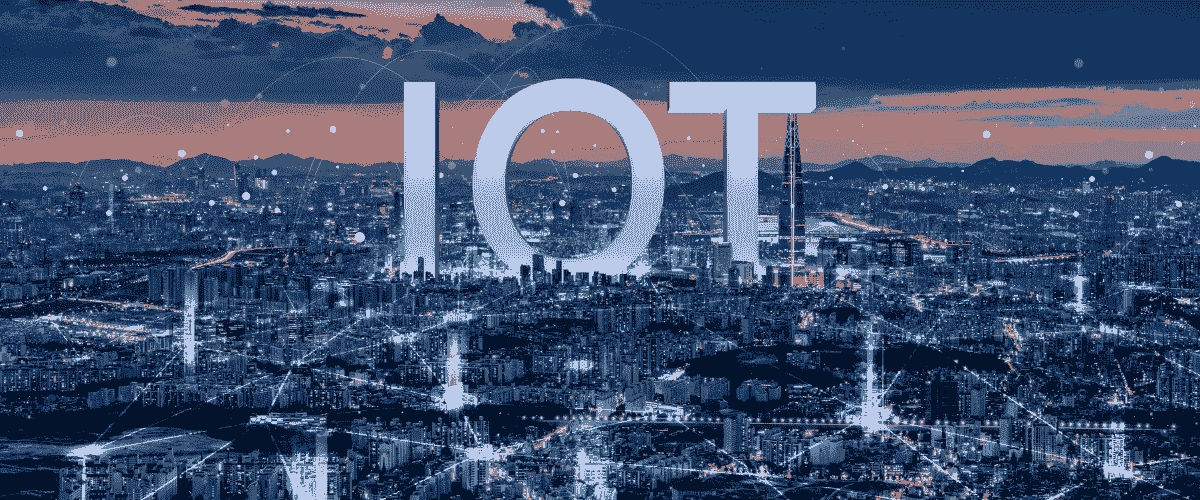IoT in 2025: Smart Cities Lead the Charge with AIoT Innovations

AIoT Fuels Smart City Innovations in 2025
In 2025, the Internet of Things (IoT) is undergoing a transformative shift, with smart cities leading the charge through the integration of AIoT—Artificial Intelligence combined with IoT. This convergence is enabling cities to manage resources efficiently, reduce environmental impact, and enhance quality of life for residents. According to a McKinsey report, cities implementing smart mobility solutions could reduce travel times by 15-20% on average by 2025, with IoT-driven infrastructure at the core. BytesWall explores how AIoT is shaping smart cities, highlights key implementations, and provides strategic insights for urban planners and tech leaders.
Key AIoT Innovations in Smart Cities for 2025
AIoT is driving several advancements in smart city development, leveraging IoT sensors and AI analytics to create more sustainable and efficient urban environments:
- Smart Traffic Management: AIoT systems use real-time data from traffic sensors and cameras to optimize signal timings, reducing congestion by 20%. Cities like Singapore have reported a 15% decrease in peak-hour travel times in 2025.
- Energy Optimization: Smart grids powered by AIoT forecast energy demand, reducing waste by 10%. In 2025, 30% of European cities have adopted AIoT for energy management, cutting costs by $500 million annually.
- Public Safety: AIoT-enabled surveillance systems analyze video feeds to detect anomalies, reducing crime rates by 25%. Cities like Chicago have deployed these systems, improving response times by 40%.
- Waste Management: AIoT sensors in waste bins optimize collection routes, reducing operational costs by 15%. In 2025, 50% of U.S. cities have implemented smart waste systems, diverting 20% more waste from landfills.
Spotlight: Bosch’s AIoT Solutions for Smart Cities
Bosch, a global leader in IoT and AI technologies, is spearheading smart city innovations in 2025 with its AIoT solutions. At CES 2025, Bosch unveiled its latest long-range LiDAR sensors and AI-based systems, which are now deployed in cities like Berlin to enhance traffic management. These sensors process data at the edge, reducing latency by 30% and enabling real-time traffic adjustments. Bosch’s smart parking solution, integrated with AIoT, has reduced parking search times by 25% in pilot cities, cutting emissions by 10%. Additionally, Bosch’s energy management systems have helped Berlin save $50 million in energy costs in 2025 by optimizing street lighting and grid distribution.
Learn more about Bosch’s smart city solutions at their official website: bosch.com/solutions/smart-cities.
Other Pioneers in AIoT for Smart Cities
Bosch is joined by several key players advancing AIoT in smart city development:
- IBM: IBM’s Watson IoT platform integrates AI to manage smart city operations, with 200 cities using its solutions in 2025 to reduce energy consumption by 15%. Visit ibm.com/iot for more details.
- Siemens: Siemens’ City Air Management system uses AIoT to monitor air quality, reducing pollution by 20% in 100 cities in 2025. Learn more at siemens.com/smart-cities.
- Cisco: Cisco’s Kinetic platform processes IoT data with AI, helping 150 cities in 2025 improve public safety by 30%. Explore more at cisco.com/solutions/internet-of-things.
Challenges Facing AIoT in Smart Cities
Despite its promise, AIoT in smart cities faces several challenges:
- Data Privacy Concerns: With 75% of enterprise data processed at the edge in 2025, ensuring privacy remains a hurdle. A 2023 Cybersecurity Ventures study projected cybercrime costs could reach $10.5 trillion by 2025, with IoT devices as prime targets.
- Interoperability Issues: The lack of standardized protocols hampers integration, with 48% of cities reporting compatibility issues between IoT devices, according to an Omdia survey.
- High Implementation Costs: Deploying AIoT infrastructure is expensive, with initial costs for mid-sized cities averaging $100 million, deterring 20% of municipalities from adoption.
Case Study: Singapore’s Smart Traffic Network
In 2025, Singapore expanded its AIoT-driven smart traffic network, integrating 5G and edge computing to manage 1 million vehicles daily. The system, developed in collaboration with Cisco, uses AI to analyze data from 10,000 sensors, reducing congestion by 20% and cutting emissions by 15%. This initiative has saved the city $200 million annually in fuel costs and improved air quality, demonstrating AIoT’s potential to create sustainable urban ecosystems.
Strategic Insights: Leveraging AIoT for Smart Cities in 2025
For urban planners and tech leaders, BytesWall offers these strategic insights to leverage AIoT in smart cities:
- Prioritize Interoperability: Adopt standardized protocols like SGP.32 for remote SIM provisioning to ensure seamless device integration, addressing compatibility challenges.
- Enhance Security: Implement blockchain and edge computing to secure IoT data, reducing cyber risks and building public trust in smart city initiatives.
- Secure Funding: Partner with tech giants like IBM or Cisco to offset implementation costs, leveraging their expertise to scale AIoT projects efficiently.
These strategies can help cities harness AIoT to create sustainable, efficient urban environments.
The Future of AIoT in Smart Cities
By 2030, IoT devices are projected to reach 40 billion globally, with smart cities accounting for 30% of deployments. In 2025, AIoT is setting the foundation, but challenges like data privacy, interoperability, and costs must be addressed to sustain growth. While AIoT promises efficiency and sustainability, its reliance on vast data collection raises ethical concerns about surveillance and privacy that cities must navigate carefully. As urban development evolves, AIoT will be pivotal in creating cities that are not just smart, but also equitable and sustainable—though the balance between innovation and ethics will remain a critical question.
BytesWall: Your Source for IoT Innovation
Stay Ahead in IoT
What are your thoughts on AIoT’s role in smart cities in 2025? Share your insights in the comments and join the conversation with #IoTSmartCities2025!
Discover more cutting-edge tech insights at BytesWall.com—your premier destination for AI, tech, and innovation news!